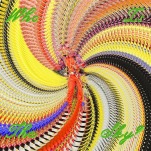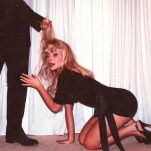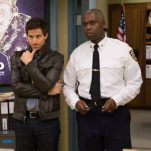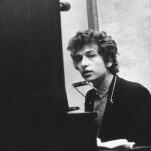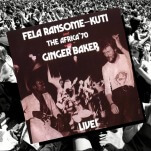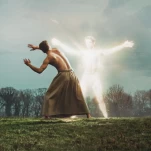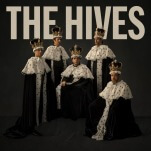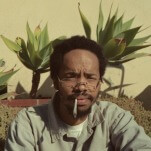David Byrne Embraces the Absurd on Who Is the Sky?
The former Talking Heads singer’s first album since 2018 is a joyous rejoinder to a creeping sense of gloom.

David Byrne has never lost his love for discovery. At 73, the veteran singer, songwriter, author, Broadway composer, and filmmaker retains a curiosity about the world around him that is rare at any age. Combine that with a nimble mind and a restless spirit and the result is a musician who is continuously exploring new creative avenues. That means working with the producer Kid Harpoon (Miley Cyrus, Harry Styles, Shawn Mendes) and the 15-member chamber ensemble Ghost Train Orchestra on his latest album, Who Is the Sky?
It’s his 11th solo album (if we’re counting the collaborations with Brian Eno and St. Vincent) and the follow-up to 2018’s American Utopia, a title that even then could easily have been derisive or cynical. That’s not how Byrne operates, though, and the songs on that album were upbeat and optimistic: When he sang the hook on “Everyday Is a Miracle,” he delivered the line with such conviction that thinking otherwise seemed unreasonable. He carries that joyous tone into Who Is the Sky?, on a dozen new songs that sound ebullient right from the start. The musical arrangements have a lot to do with that: drummer Tom Skinner of The Smile and percussionist Mauro Refosco lock down immaculate grooves (with additional rhythmic contributions from Kid Harpoon) that serve as a launching pad for the rest of the musicians. On opener “Everybody Laughs,” that manifests as a delirious riot of strings swirling through bursts of brass, the bright chatter of a marimba and layers of effusive vocals led by Byrne himself, with a guest spot from St. Vincent.
-

-

-

-

-

-

-

-

-

-

-

-

-

-

-

-

-

-

-

-

-

-

-

-

-

-

-

-

-

-

-

-

-

-

-

-

-

-

-

-

